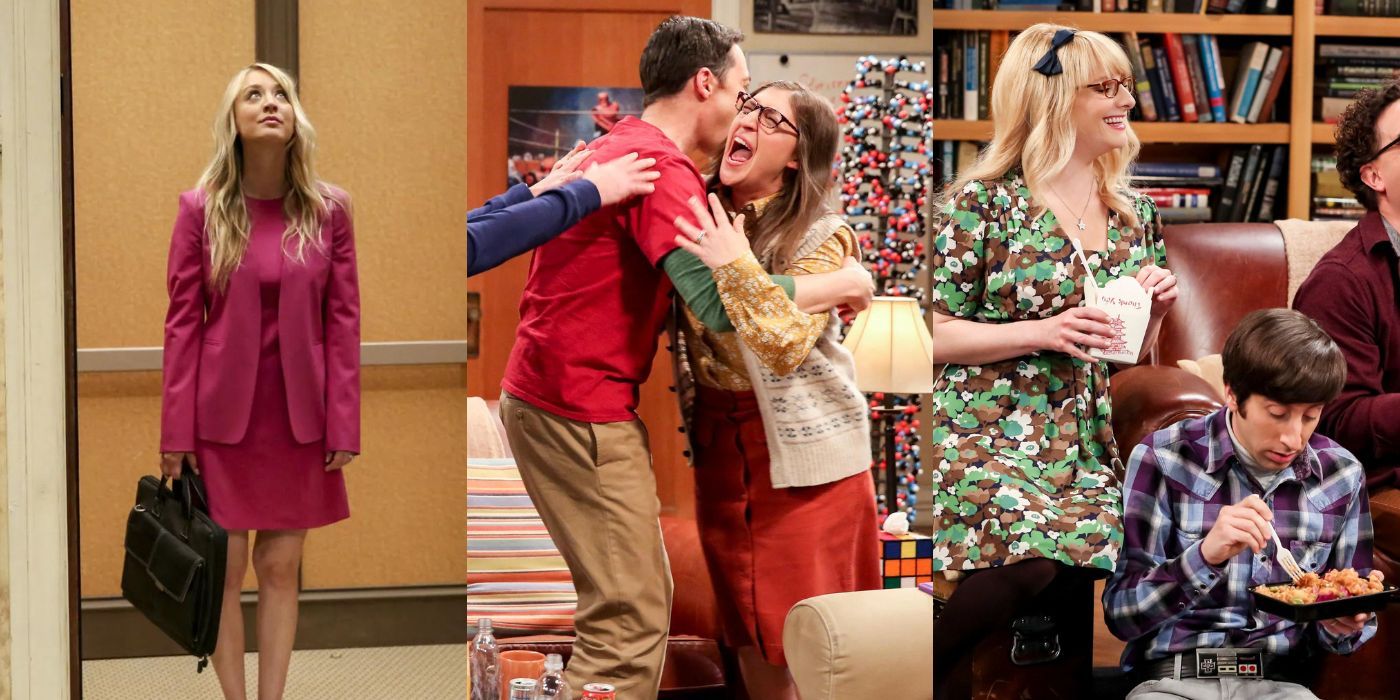
When The Big Bang Theory premiered in 2007, Penny was introduced as the classic sitcom archetype: the bubbly, attractive girl-next-door. Portrayed by Kaley Cuoco, she was the audience’s access point into a world of theoretical physics, cosplay, and comic book references. Surrounded by a cast of academically brilliant, socially awkward men, Penny stood out—because she wasn’t like them.
But over twelve seasons, something remarkable happened. Penny went from being a comedic foil to a fully realized character with emotional depth, ambition, and complexity. Her journey is one of the most underrated arcs in the series, and in many ways, she became the show’s heart and humanity.
The Bridge Between Two Worlds
Penny’s arrival in the pilot wasn’t just narrative convenience—it was a masterstroke. Leonard and Sheldon were deep in their own scientific microcosm. Penny, newly moved from Nebraska with dreams of becoming an actress, offered contrast, warmth, and chaos.
She brought pop culture references they didn’t understand. She introduced social norms they were unfamiliar with. And, crucially, she treated them like people rather than stereotypes.
In those early seasons, much of the humor came from her interactions with the guys—teasing Sheldon, rejecting Howard’s awkward advances, and slowly developing chemistry with Leonard. But even as the comedy leaned into differences, Penny’s presence brought balance. She was empathetic, grounded, and more intelligent than the show initially let on.
More Than Just the “Hot Neighbor”
For a long time, Penny’s character was reduced to her looks—by the male characters and, at times, the writing itself. But as the series progressed, Kaley Cuoco subtly reshaped that narrative. Her comedic timing, emotional nuance, and chemistry with the rest of the cast deepened Penny’s persona.
Penny wasn’t book-smart, but she was emotionally intelligent. She understood people, picked up on subtext, and could mediate conflicts that the “geniuses” couldn’t comprehend.
Episodes that centered around her relationships—with Sheldon, Amy, and Bernadette—revealed layers of loyalty, protectiveness, and vulnerability. Whether she was helping Sheldon cope with social anxiety or being a big sister to Amy, Penny’s empathy became her defining trait.
She became more than “the normal one.” She became the connective tissue that held the group together.
Career Shifts and Realistic Struggles
One of the most grounded aspects of Penny’s arc was her career journey. She started as an aspiring actress, struggling with auditions and dead-end gigs. Unlike the other characters, whose careers were linear and successful, Penny faced rejection, self-doubt, and stagnation.
But rather than give her a predictable Hollywood breakthrough, the show made a bold—and refreshingly real—choice: Penny left acting behind and found unexpected success in pharmaceutical sales.
At first, it seemed like a detour. But it was a turning point. Penny’s new job forced her to confront questions of ambition, self-worth, and identity. She wrestled with whether success without passion was enough, and those internal conflicts added emotional weight to her story.
In many ways, Penny’s professional evolution was more relatable than the characters who won Nobel Prizes. She made mistakes, pivoted, and found unexpected confidence in a career she never dreamed of.
The Quiet Power of Her Relationships

While Leonard and Sheldon’s bromance often took center stage, Penny’s relationships—romantic and platonic—quietly shaped the emotional core of the show.
Her romance with Leonard spanned twelve seasons of will-they-won’t-they tension, breakups, reconciliations, and eventual marriage. What made it special wasn’t their compatibility—it was their growth. Leonard learned to be more assertive. Penny learned to trust her heart. And together, they learned to navigate the messiness of real partnership.
But it was Penny’s unlikely friendship with Sheldon that became one of the show’s most surprising delights. What began as mutual annoyance evolved into genuine care. She sang “Soft Kitty” when he was sick. He offered her awkward but heartfelt advice. Their relationship transcended labels—it was deeply human.
Penny also built a unique bond with Amy and Bernadette, forming a trio that gave the show its most grounded scenes. Their wine nights, career chats, and shared secrets felt like real friendships—not just plot devices.
Rewriting the Stereotype
Penny started the series as the least “academic” member of the group. But by the end, she had arguably the most emotional intelligence and real-world wisdom. She became a voice of reason, a source of stability, and often the one person who could cut through the group’s noise with clarity.
Her evolution challenged the idea that intelligence only comes in degrees or technical knowledge. Penny didn’t need a PhD to contribute. She understood people—and that, the show quietly argued, is its own kind of brilliance.
A Woman of Choice and Agency
One of the most controversial decisions in the final season was Penny’s stance on motherhood. In Season 12, she revealed she didn’t want to have children—an honest and bold declaration that echoed a growing number of real-world conversations about agency, identity, and societal expectation.
While the finale ultimately reversed that decision (she ends up pregnant), fans continue to debate whether it honored or undercut her character’s arc. Still, the fact that The Big Bang Theory allowed its lead female character to voice that choice—even briefly—was a meaningful step for mainstream television.
Conclusion: Penny, the Heart of Pasadena
In a show filled with eccentricity, intellect, and comic books, Penny was the constant reminder of life beyond academia. She brought balance, heart, and an outsider’s point of view that helped audiences feel seen.
Her growth was subtle but significant. From aspiring actress to confident professional. From awkward neighbor to beloved friend. From sitcom cliché to one of the most quietly complex characters in modern comedy.
Penny may have lived in the apartment across the hall. But by the end of the series, she had earned her place at the center of everything.